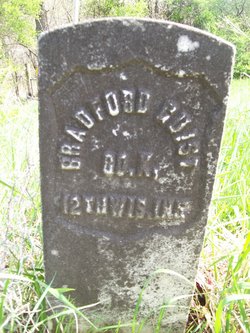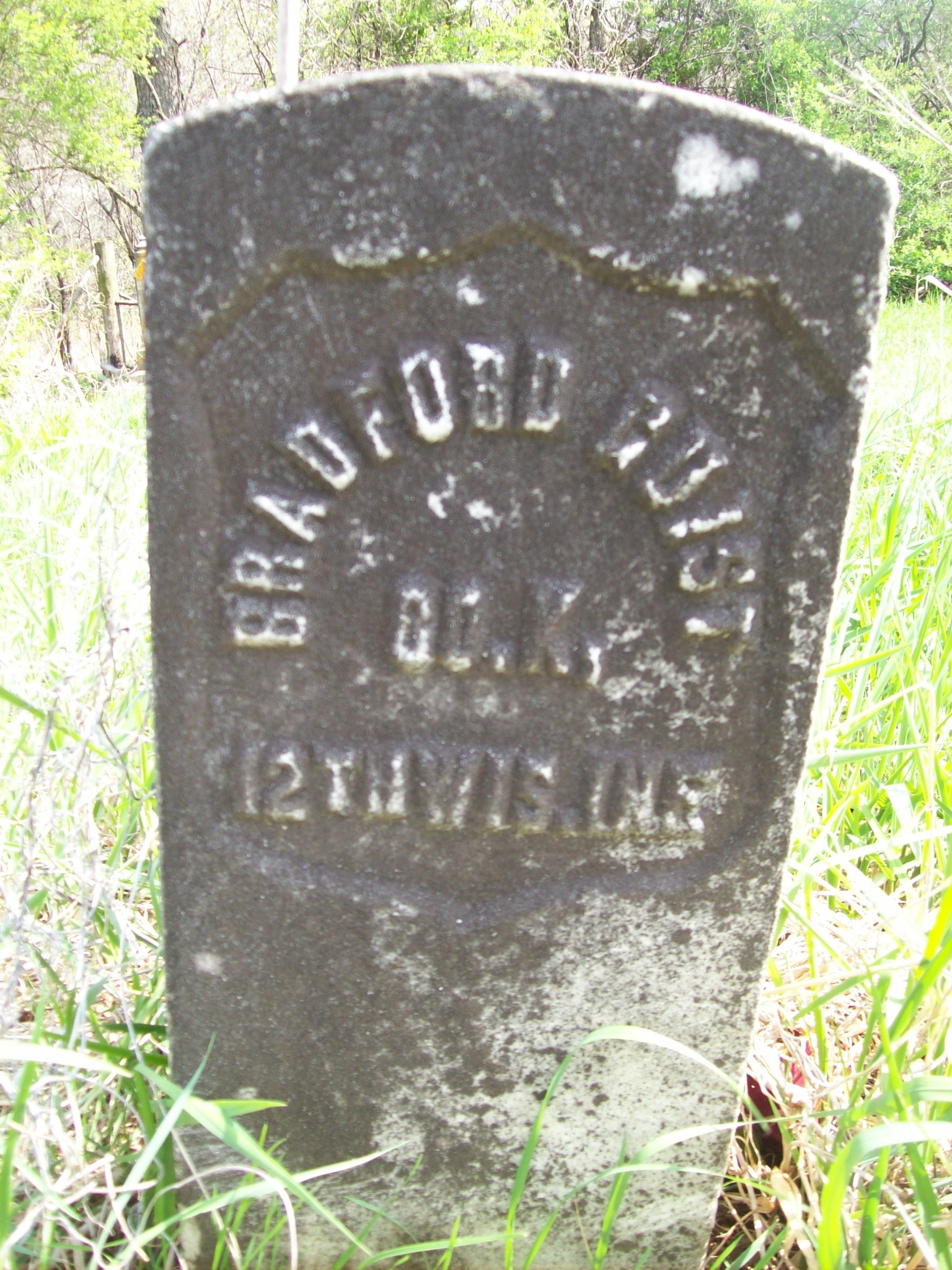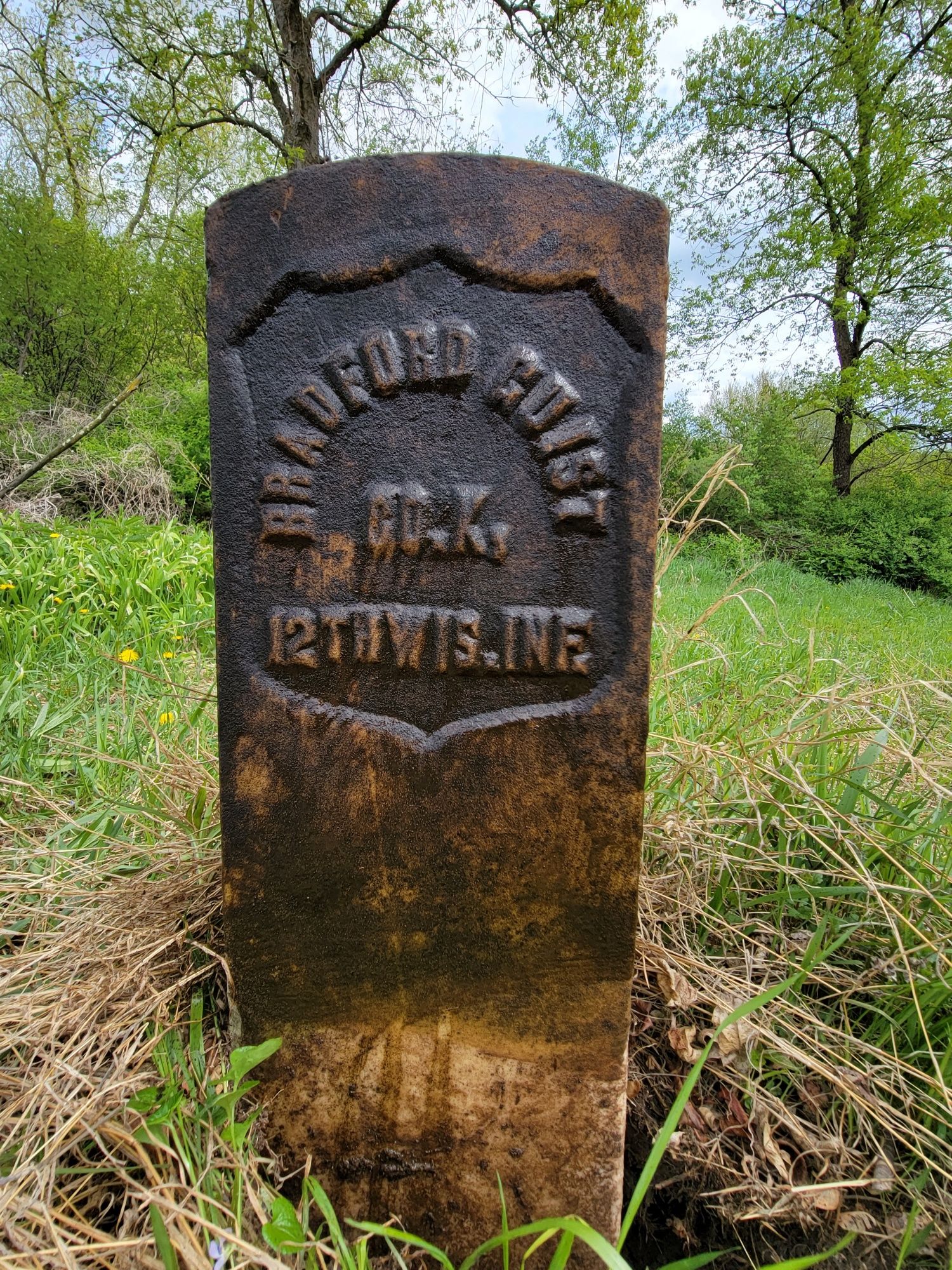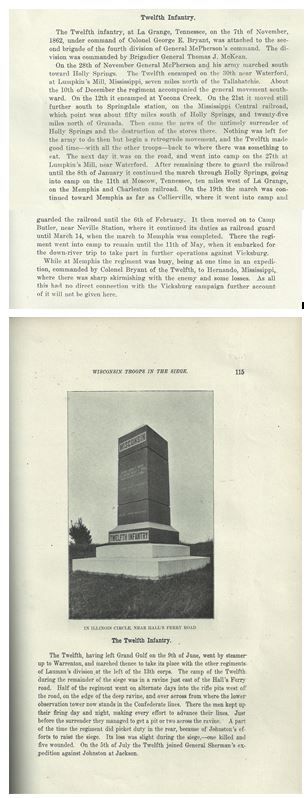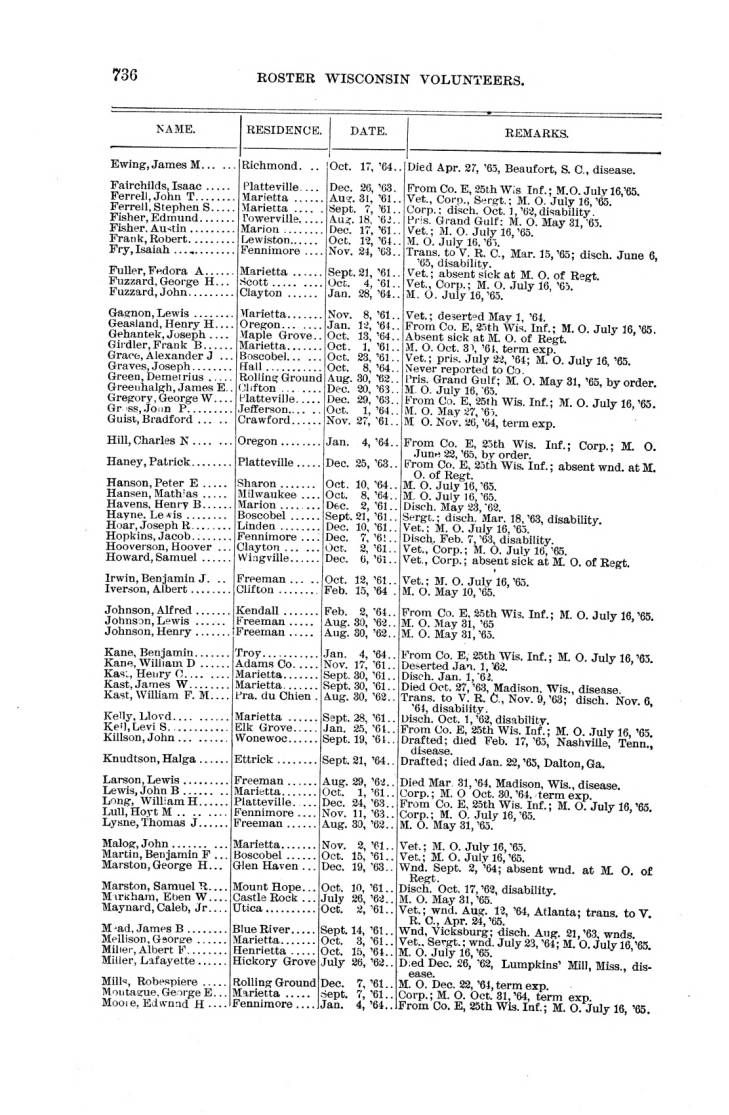Weston, Mo., Jan. 26 1862.
The following is an extract from a letter from the Twelfth Regiment:
We left Camp Randall on Saturday, the 11th January last, on the cars, and arrived in Chicago the same evening. After marching through town and taking a cup of coffee, we again embarked on the cars for Quincy, Ill., where we arrived the next morning, both hungry and sleepy, as we had been on short allowance. Our allowance was nine crackers and three-fourths of a pound of meat for 3 days. At about ten o'clock the same morning, we were ordered into line, and were ordered to march to Douglas Mill, a distance of 24 miles, and directly opposite to Hannibal, Mo., which we performed, without stopping or eating. But many of our men were obliged to fall out of the ranks, and some did not come up with us until the next morning, and others got sick and were sent to the hospital, and of them have not yet come up. When we got to Douglas' Mill, we count not cross the river, and were obliged to stop on the bank of the river all of that cold night and the next day until 2, P.m., without camp or much shelter and less to eat.
When we crossed over the river to Hannibal, where we quartered for the night, and those who had money got something to eat, the next morning we were crowded in to a cattle train, as thick as sheep in a pen, so thick that you could not walk from one end of the car to the other without running over each other, without fire or light, and about two inches of snow in said cars. We were not allowed to get out from six o'clock in the morning until 4 o'clock, and then only long enough to get a poor cup of coffee. Then taking the cars again, after a long and tedious night we arrived at Weston on Thursday morning, being the 16th day of January, tired, cold and hungry, and very nearly sick, and looking a great deal like so many pigs. Weston is quite a city, but is nearly deserted by its inhabitants. It is situated on the Missouri side of the river of the same name, and is four miles from Fort Leavenworth, and about six miles from Leavenworth City, Kansas. Weston is noted for three things: first, for being the headquarters of the pro-slavery men in the Kansas war, and is still secesh; second, for the number of mules, which are driven six in a team, the driver riding one of them, and for the number of negro slaves.
We have very good quarters here. Our regiment occupies five churches and some of the best dwellings in town, and we now far some better than we did, receiving our full rations, or nearly so. The Eighteenth Missouri are here with us, bit are badly clothed, and have not been paid. They are wearing their summer clothes that were made in Wisconsin and refused by the government. They are much dissatisfied with their colonel, believing him to be secesh. The 13th arrived here last Tuesday, and have gone to Leavenworth. Two hundred Ohio cavalry arrived here yesterday, and have gone to Platte City. The Ninth Wisconsin Infantry have just arrived, and are here now. General Lane has also arrived with them. We expect to remain here during the winter. We are in the midst of secesh, but they dare not fight. They lay in ambush and will shoot and run, and it requires cavalry to catch them. We take more or less prisoners every day.
The regiment enjoys petty good health, with the exception of the measles and colds.
Yours truly,
BRADFORD GUIST
Secesh:
Secessionist definition: A supporter of the Confederacy during the United States Civil War.
Contributor: DDP - Monument Cleaner (49466120)
Weston, Mo., Jan. 26 1862.
The following is an extract from a letter from the Twelfth Regiment:
We left Camp Randall on Saturday, the 11th January last, on the cars, and arrived in Chicago the same evening. After marching through town and taking a cup of coffee, we again embarked on the cars for Quincy, Ill., where we arrived the next morning, both hungry and sleepy, as we had been on short allowance. Our allowance was nine crackers and three-fourths of a pound of meat for 3 days. At about ten o'clock the same morning, we were ordered into line, and were ordered to march to Douglas Mill, a distance of 24 miles, and directly opposite to Hannibal, Mo., which we performed, without stopping or eating. But many of our men were obliged to fall out of the ranks, and some did not come up with us until the next morning, and others got sick and were sent to the hospital, and of them have not yet come up. When we got to Douglas' Mill, we count not cross the river, and were obliged to stop on the bank of the river all of that cold night and the next day until 2, P.m., without camp or much shelter and less to eat.
When we crossed over the river to Hannibal, where we quartered for the night, and those who had money got something to eat, the next morning we were crowded in to a cattle train, as thick as sheep in a pen, so thick that you could not walk from one end of the car to the other without running over each other, without fire or light, and about two inches of snow in said cars. We were not allowed to get out from six o'clock in the morning until 4 o'clock, and then only long enough to get a poor cup of coffee. Then taking the cars again, after a long and tedious night we arrived at Weston on Thursday morning, being the 16th day of January, tired, cold and hungry, and very nearly sick, and looking a great deal like so many pigs. Weston is quite a city, but is nearly deserted by its inhabitants. It is situated on the Missouri side of the river of the same name, and is four miles from Fort Leavenworth, and about six miles from Leavenworth City, Kansas. Weston is noted for three things: first, for being the headquarters of the pro-slavery men in the Kansas war, and is still secesh; second, for the number of mules, which are driven six in a team, the driver riding one of them, and for the number of negro slaves.
We have very good quarters here. Our regiment occupies five churches and some of the best dwellings in town, and we now far some better than we did, receiving our full rations, or nearly so. The Eighteenth Missouri are here with us, bit are badly clothed, and have not been paid. They are wearing their summer clothes that were made in Wisconsin and refused by the government. They are much dissatisfied with their colonel, believing him to be secesh. The 13th arrived here last Tuesday, and have gone to Leavenworth. Two hundred Ohio cavalry arrived here yesterday, and have gone to Platte City. The Ninth Wisconsin Infantry have just arrived, and are here now. General Lane has also arrived with them. We expect to remain here during the winter. We are in the midst of secesh, but they dare not fight. They lay in ambush and will shoot and run, and it requires cavalry to catch them. We take more or less prisoners every day.
The regiment enjoys petty good health, with the exception of the measles and colds.
Yours truly,
BRADFORD GUIST
Secesh:
Secessionist definition: A supporter of the Confederacy during the United States Civil War.
Contributor: DDP - Monument Cleaner (49466120)
Inscription
Co K 12th Wis Inf Civil War
Family Members
Advertisement
Advertisement
